What Are The Different Types Of Mortgage Loans?
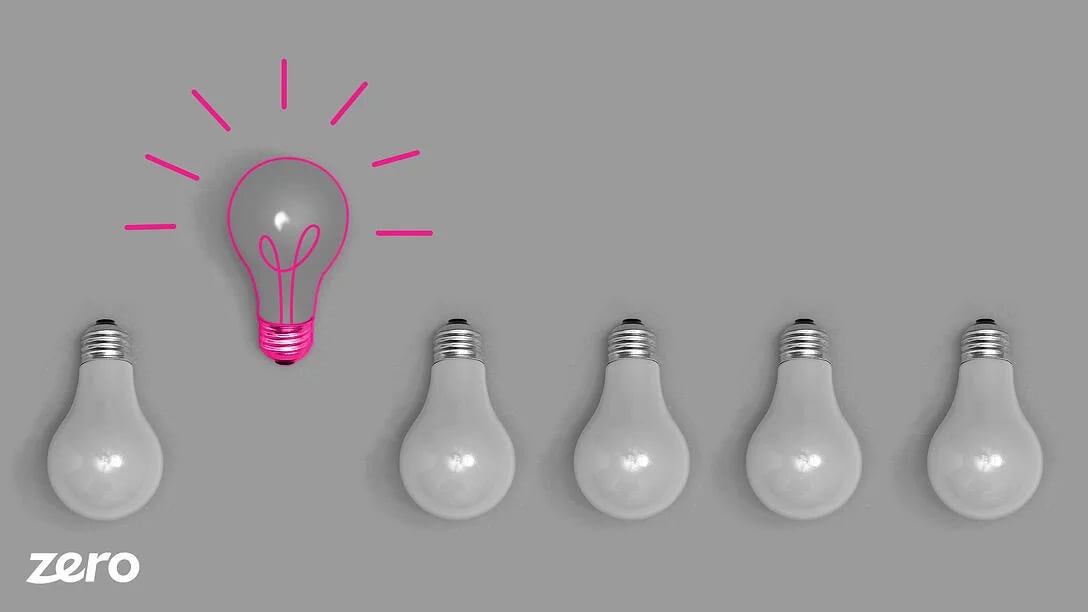
It’s likely that your mortgage loan will be the largest loan you have during your lifetime. Mortgages are not a one size fits all approach, there are many different types of options you can choose from – all having their own unique qualities.
To make the best decision, you first must understand the different types of loans. Once you understand the loans, it’s easier to decide which loan is best suited for you. We’ll address the various options below.
Various Terminology
There is some foundational terminology worth reviewing that will set the stage to properly understand the different types of loans.
These terms include:
Conventional Mortgage
A conventional loan is a mortgage loan that is not backed by any government agency. Conventional loans are issued through private lenders, such as a bank or credit union.
Generally speaking, a borrower will have to meet greater requirements to obtain a conventional loan, such as a higher credit score. The higher your credit score, the more preferential your interest rate is likely to be, which can save you a lot of money over the life of your loan
Conforming Mortgage
A conforming mortgage is a loan that conforms with, or complies with, the financing limits and requirements established by the Federal Housing Finance Agency (FHFA). There are various underwriting requirements that must be met: a minimum credit score, a limit on the loan amount, various debt ratios, and even a loan-to-value ratio.
For those with a great credit score, a conforming mortgage may be of interest to you due to the low interest rates these loans come with.
Non-Conforming Mortgage
A non-conforming mortgage is a loan that doesn’t meet the government regulated Fannie Mae’s or Freddie Mac’s standards.
Rather, they are just harder loans for the mortgage company to resell because they do not meet the standards established by Fannie Mae or Freddie Mac, such as the ratios or limits established in a conforming loan.
Government Insured Mortgages
A government insured mortgage is a mortgage loan the government insures or guarantees with the private mortgage lender. This means the mortgage lender is insured against any risk of the borrower defaulting on the loan. If the borrower defaults on the loan, the government will step in and pay the mortgage lender.
Therefore, private lenders are more inclined to issue loans that are backed by the government, as they are insured against any risk of financial loss. Government insured mortgages make owning a home more reachable and realistic for millions of Americans.
There are 3 types of government issued mortgages, which we’ll explain in the different home loan options sections.
Interest Rates
A mortgage interest rate is the rate or ‘fee’ a lender charges you for borrowing their money. When you pay back your mortgage, you must pay back the loan amount, also known as the principal balance, and an additional amount determined by the interest rate.
The interest rate fee is paid throughout the duration of the loan, and is controlled by various economic and government conditions
Mortgage Insurance
Mortgage insurance is an insurance policy that pays the lender for any loss due to the borrower defaulting on the loan. You can have either a private or public mortgage insurance policy depending on the type of loan and insurer you choose. A lender will require you to carry mortgage insurance if your down payment is less than 20% of the home selling price.
For example, a person can put a down payment of 5% on a home and until the homebuyer’s equity in the home reaches 20%, the homebuyer will be required to pay between 0.5% to 1.5% of the loan amount toward mortgage insurance each year. These payments are typically included in your monthly mortgage statement.
It’s important to note, mortgage insurance does not protect you, the borrower. Instead, it is something the borrower pays that insures the lender. If you default on the loan, the lender gets paid, but you can still lose your home
Different Home Loan Options
Now with that foundational overview, let’s review the different home loan options.
Fixed-Rate Loan
Fixed-rate loans are popular loan options. A fixed-rate loan has an interest rate that does not change throughout the entire life of the loan. The interest rate remains fixed for the duration of the loan, which provides a huge benefit from a budgeting perspective, because this means your interest rate cannot increase.
It’s also common to see fixed-rate loans apply to the various other types of borrowing: student loans, personal loans, and even auto loans.
Adjustable-Rate Mortgages (ARM)
Also known as a variable-rate mortgage, an adjustable-rate mortgage (ARM) has an interest rate that can change throughout the duration of the loan. The interest rate you are charged is applied to the outstanding loan balance, and varies throughout the life of the loan. For a specific period of time, the interest rate will not change.
However, once that time has elapsed, the interest rate will reset periodically. This can be a benefit if you happen to be financing a loan when interest rates are high, because your rate could decrease, saving you money. But if the initial rate is at historically low levels, one can only suspect each time the rate adjusts, it will result in a greater monthly interest expense.
Jumbo Loans
A jumbo loan is a mortgage used to finance properties that exceed the criteria and limits of the FHFA. The properties purchased with these loans tend to be expensive, and as a result, the borrower must meet specific criteria to get approved for these loans.
An example of a jumbo loan would be if someone was buying a home that costs $1,250,000. This would be above and beyond the limits of FHFA, and a jumbo loan would be required to finance this purchase.
FHA Loans
These loans are insured by the Federal Housing Administration (FHA) and make the goal of homeowners more reachable for millions of Americans. The minimum credit score for an FHA loan is 580, and you can finance 96.5% of the loan value.
FHA loans are a common option for those just starting out, or for anyone working to repair their credit and financial situation. FHA loans do come with mortgage insurance, which again, protects the lender, not the homeowner.
VA Loans
A VA loan is for active-duty service members, an eligible spouse of a veteran, or a veteran of the United States Armed Services. VA loans come with a variety of benefits.
VA loans don’t require a down payment, and there is more flexibility if you have poor credit. If you get a VA loan, you don’t have to worry about paying mortgage insurance, and there is no prepayment penalty.
Read our blog all about VA loans here.
USDA Loans
USDA loans are mortgages backed by the US Department of Agriculture. These loans are only given to those purchasing a home within specific areas, typically rural or remote areas of the country.
These loans don’t require a down payment, and the mortgage insurance is less than what someone with an FHA loan would pay. However, unlike other loan options, the mortgage insurance runs throughout the entire duration of the loan. Also, various financial requirements must be met as well, and the loan will only be issued if the property is your primary residence.
Bridge Loans
A bridge loan is a loan designed for a short time period. Typically, one would use a bridge loan as they work on more permanent financing options. These loans tend to have higher interest rates, and typically need to be backed by the borrower's collateral or assets.
In the real estate world, a bridge loan is used when there is a delay between selling a property you currently own, and purchasing a new property. For example, if your house is on the market and hasn’t sold yet, but you really want to buy a specific house, you may use a bridge loan to do so. Once your existing house sells, you’ll refinance through a regular mortgage.
Bridge loans are a bit tricky, so we wrote a whole blog all about them here.
Reverse Mortgages
A reverse mortgage allows a homeowner, who must be at least 62 years old, to receive cash for the equity they have in their home. To qualify for a reverse mortgage, the homeowner must own the house in full, or be very close to paying it off.
Unlike a typical mortgage, a reverse mortgage doesn’t require the loan to be repaid via loan payments. Rather than paying monthly, a reverse mortgage loan amount is due when the borrower dies, moves away, or sells their home. This can be a great option if you need cash in your retirement years, and you already own your home.
Our Mortgage Learning Center features blogs on a wide range of mortgage and refinancing topics.
Now That You Know, What’s Next?
There’s certainly a lot to the mortgage world, and many different options you can choose from. Given how important a mortgage is to your overall financial picture and life, it’s critical you understand all of your options before finalizing which mortgage type you’ll use to finance your home. A good mortgage broker can walk you through each option, explain the pros and cons in greater detail, and help you select the loan that best fits your goals and requirements.
Which Type of Loan Is Right for You?
This page last updated: October 18, 2022
Read more on this topic below.

When you buy a house and start making mortgage payments, your payment consists of four different components, known...

If you have gone through the pre-approval process but need to take a deeper dive into how much house to buy,...

The vast majority of mortgage loans require you to put down a certain percentage of the selling price upfront....

Whether you’re a first-time buyer or you’ve purchased a home before, you’ve likely heard of a homeowner’s association....

People buy their homes for a number of reasons. Affordability, stability, and comfort are some of the most...

Mortgage brokers play an integral and active role in the mortgage market, offering customers a service not made...
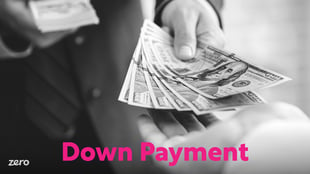
There’s a lot of expenses to keep in mind when you’re thinking about buying a home. Between the price of the home, property taxes, your mortgage...

Conventional loans are mortgages offered by private lenders, banks, and institutions that are not backed by the government. Unlike FHA, USDA,...

Some homebuyers refuse to purchase a property if it is part of a property owner association. On the...

Research indicates that 58% of homeowners in HOA communities and single-family homes pay an average monthly fee...

Private mortgage insurance is something millions of homeowners pay for each year. However, this type of insurance does not protect

When you first set out to buy a home, it can feel like you’re taking an exam you forgot to study for. You have to make quick...

When looking to refinance or buy a house, the pre-qualified vs pre-approved mortgage debate can be...

A mortgage is often the largest monthly expense homeowners pay. The thought of reducing the amount...
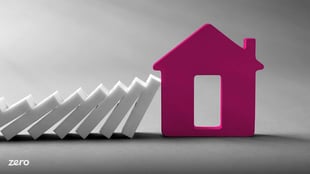
A home doesn’t just fall into foreclosure status. There are stages and processes that take place behind the scenes before...

Refinancing your home can save you thousands of dollars per year! When you extrapolate that savings over...

For many people, owning a home is part of the American dream. To make this dream a reality, most people will take out a...

Whenever you’re looking to buy a house, you’ll quickly realize there are a lot of fees associated with obtaining a mortgage....
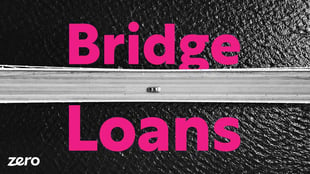
A bridge loan is a short-term loan a borrower may use while a more long-term financing contract is finalized. Bridge...

A loan estimate is crucial to obtain when looking for a loan. This estimate not only gives you the details of a mortgage but also compares offers...

There are many moving parts and various people you’ll deal with throughout the homebuying process....

If you’re looking to buy a house, and do not have a mountain of cash saved up, you’ll need to consider getting a mortgage to help you finance this...

If you find a property that you’re highly interested in buying but are concerned that the seller might choose...

Buying a home? You’ll likely need to get it appraised before you receive the clear to close. If you’re wondering...

If you’re an active service member, a veteran, or the surviving spouse of a veteran, and you want to ...

There’s no doubt, COVID-19 changed the world in countless ways and took us all by surprise. From an...

Whenever you are borrowing money, whether it’s for a new mortgage, a refinance, credit card, or car loan, you’ll hear...
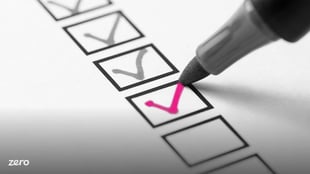
Refinancing can open up opportunities for homeowners to cash out on equity, reduce monthly mortgage payments, or renegotiate the interest...

The interest rate on a mortgage is simply the fee a lender charges the borrower for borrowing their money. Over the...

A cash-out refinance is the process of taking the equity you have built in your home in the form of a cash deposit into a designated account...

If you’re new to buying a home, you probably have quickly realized the overwhelming amount of options there...
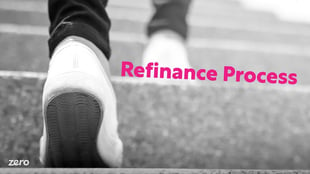
Consider this scenario. You bought a house several years ago, and at the time, you thought you got a pretty great...

If you’ve already gone through the lengthy process of writing offers, securing financing, and arranging inspections for your...

One of the most important steps to buying a home is deciding on a mortgage loan and deciding on a loan involves settling on a good...

First time home buyers are often surprised when they learn about all of the expenses that are associated with ...

Purchasing real estate is not as simple as finding the right home, submitting an offer, and signing the closing paperwork; many...
